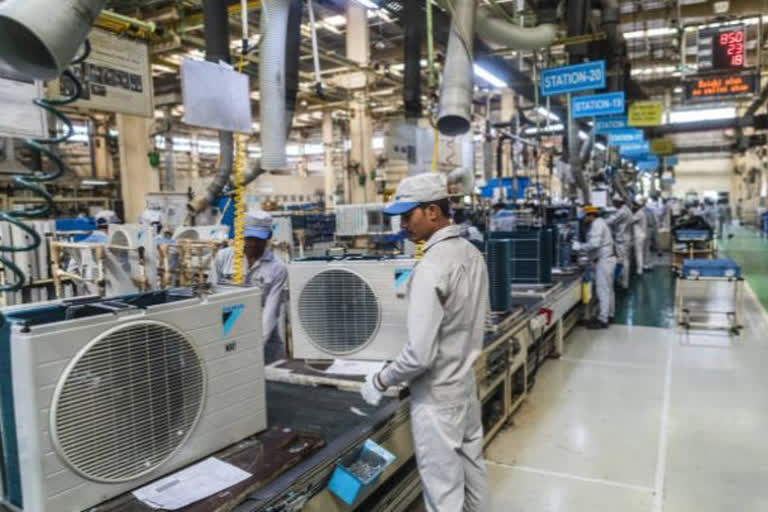New Delhi: The Indian government is working relentlessly to attract those foreign companies that are seeking to relocate their production facilities out of China. Several large corporations are seeking to exit from China as they fear that a clash between the West and China over the latter's handling of Covid-19 outbreak, and a simmering trade tension between the US and China may adversely affect their businesses.
In order to attract these companies, the Centre identified a large pool of lands and several States suspended their labour laws to solve the twin problem of land and labour, however, experts suggest that mere labour law reforms will not be enough to attract these companies.
“If a company cannot reshuffle its pack of workers, if they are saddled with people they do not want or cannot upscale or downscale, they will think twice,” said Vishnu Prakash, a former diplomat.
Ambassador Vishnu Prakash, who was India’s consul general in China’s business capital Shanghai, says flexible labour laws are one of the important requirement but there are other factors that will be considered by companies relocating from China.
“What we are looking at is a global supply chain that will segment into regional or sub-regional supply chains. It is a once in lifetime opportunity opening up. How do we harness it is a big question,” he told ETV Bharat.
In addition to labour laws, availability of land is also a problem for foreign investors.
In order to woo these foreign companies, the Union government last month identified a land pool twice the size of Luxembourg that can be readily made available to them if they agree to set up their production centres in the country.
Read more:Government must provide social security to implement flexible labour laws: Uday Kotak
Several states like Uttar Pradesh, Madhya Pradesh, Gujarat, Rajasthan, Punjab and Maharashtra also suspended or diluted their labour laws to attract these companies.
However, ambassador Vishnu Prakash, who closely interacted with foreign investors during his stint as India’s ambassador to South Korea and the country's High Commissioner to Canada, advises to improve the entire ecosystem rather than solving just two problem areas - land and labour.
He says India improved its ease of doing business ranking from 142 to 63 in last 4-5 years, which is remarkable, but it also shows there are 62 countries that are still ahead of India.
Ambassador Vishnu Prakash says an investor is going to look where he is going to get the biggest bang for his buck.
“He (an investor) will certainly take into account all factors, availability of raw-material, manpower, industrial relations, record of a state, ease of doing business and labour laws,” Mr Vishnu Prakash noted.
I don’t think that we have a choice in not improving our environment in all spheres, improve the investment climate, move away from being regulative and become facilitative, he said.
The former diplomat also underscores the need to have a predictable policy, particularly a predictable tax policy in the country.
“One of the things that damaged our cause was retrospective tax. A businessman doesn’t like surprises. He seeks predictability,” said Mr Vishnu Prakash while referring to the UPA government’s decision to pursue a $2.5 billion case against Vodafone’s acquisition of Hutch Telecom in 2007.
While referring to recent labour law changes in several states, ambassador Vishnu Prakash says, any incremental step was welcome as one has to build consensus in a country like India.
“If there is ever an opportunity to clean up the cobweb then it is now,” he told ETV Bharat while underscoring the need to swiftly implement these reforms as several east Asian countries like Vietnam, Thailand and Malaysia have already emerged as preferred destination for the companies looking to exit from China.
(Article by Krishnanand Tripathi)



